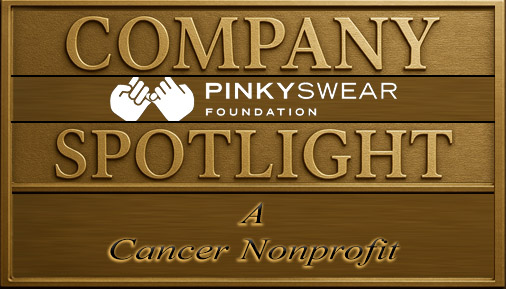Pinky Swear Foundation began when nine-year-old Mitch asked his father to make a pinky swear promise to help kids with cancer. That promise has grown into a national effort that supports families with everyday expenses like gas, groceries, and housing while they care for a child with cancer. You can learn more or get involved at pinkyswear.org.


